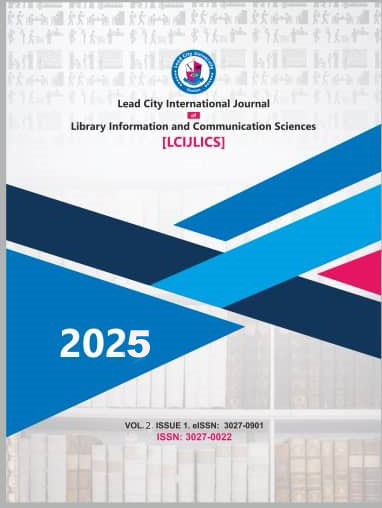Impact of Community Radio on Agricultural Development in Southwest Nigeria
DOI:
https://doi.org/10.63741/Keywords:
Work Environment, Organizational Commitment, Librarians, Academic Library, Tertiary InstitutionAbstract
This study investigates the impact of community radio on agricultural development in Southwest
Nigeria. Using a survey design, data were collected from 100 respondents, comprising farmers
actively engaged in agricultural activities. The findings reveal that community radio serves as a
critical medium for disseminating agricultural knowledge, promoting the adoption of innovative
practices, and improving farming productivity. A significant majority of respondents
acknowledged that agricultural programs on community radio enhanced their knowledge of
modern techniques, contributed to higher yields, and informed their decision-making. However,
challenges such as poor signal quality, limited access to affordable radio devices, and inadequate
agricultural content hinder the optimal utilization of community radio. The study adopts
Development Communication Theory which was primarily propounded by Everett M. Rogers in
1962 and Diffusion of Innovations Theory, further expanded by Wilbur Schramm in 1964,
emphasizing on the role of communication in promoting social change and development,
particularly in rural settings. Recommendations include improvement of Signal Quality that the
government and radio stations should invest in infrastructure to enhance signal strength and
expand the reach of community radio to remote areas. This research underscores the
transformative potential of community radio in addressing agricultural challenges and fostering
rural development.

